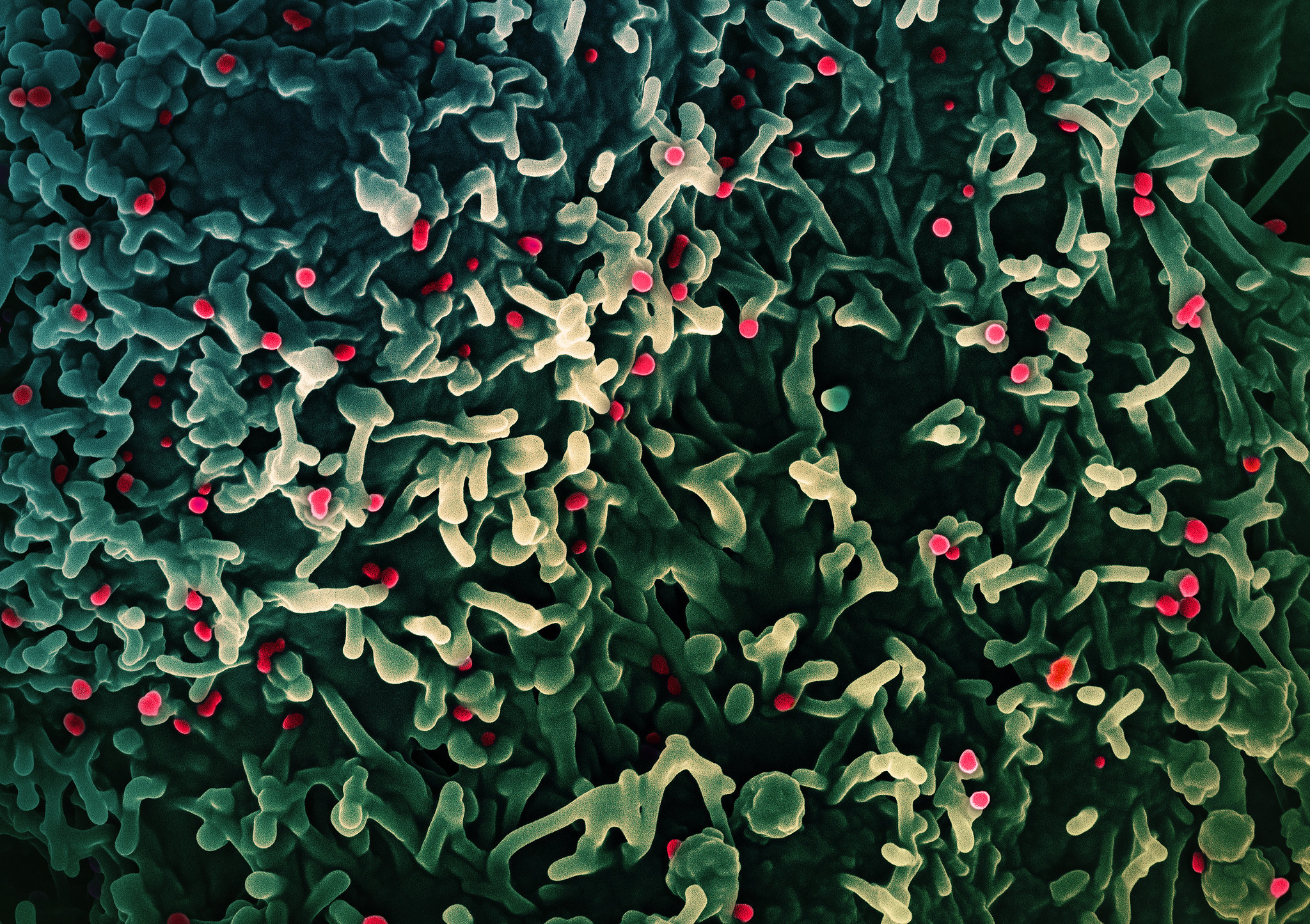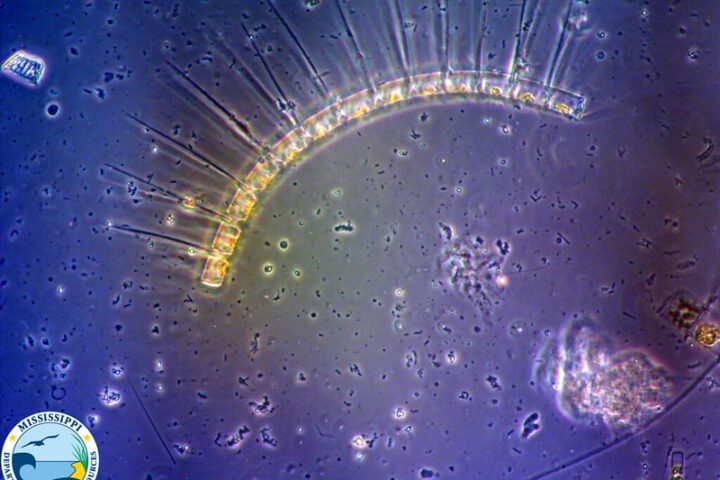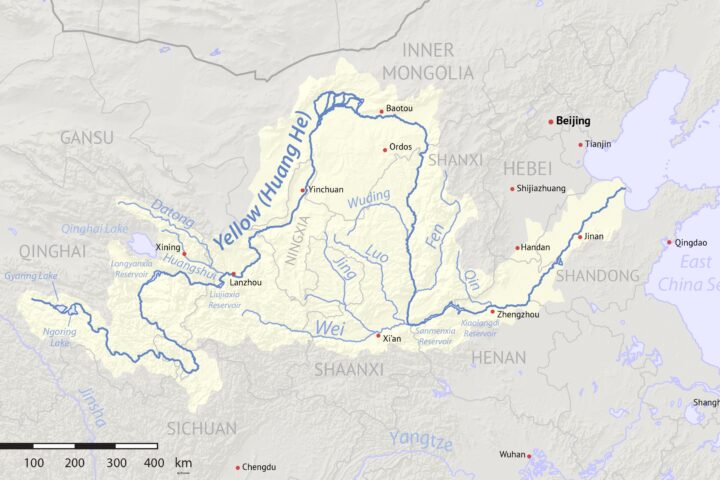Source: Flickr- Monkeypox Virus _ Colorized scanning electron micrograph
Learn about the outspread of the deadly monkeypox virus, its symptoms, and preventions and cure.
After the COVID pandemic, situations which first seemed like events, which could only take place in sci-fi media, don’t seem so unrealistic before. The mark this global calamity has left behind is not something any of us would be forgetting anytime soon. Now we know there are threats lurking around which aren’t so obvious but will surely lead to the same circumstances as in the COVID pandemic if given the chance to.
One such issue is the onset of the Monkeypox virus which was a relatively obscure disease up until now. No one could have seen it coming since the disease has been kept controlled in previous outbreaks. But now, the outbreak has spread to parts of Africa as well as Asia- capturing the attention of various governments and health constitutions. What is this disease? Will it reset the progress we have made since recovering from the corona virus outbreak?
Origins
The viral infection was first detected in 1958 among a group of monkeys which had been shipped to Denmark all the way from Singapore. Subsequently, cases were found in the USA, France, and the Netherlands but only amongst monkeys. The first human case was reported in 1970 in the Democratic Republic of the Congo. The patient was a 9-year-old boy who wasn’t vaccinated against smallpox. This proved to be deadly because a smallpox vaccination has been found to be 85% more effective for preventing monkeypox infection.
After this, many more cases were found slowly but steadily in regions of west and central Africa. There were outbreaks with the most recent one being reported in 2017 which was also kept under control.
According to WHO, the monkeypox virus is “an orthopoxvirus that causes mpox (monkeypox), a disease with symptoms similar to smallpox, although less severe,” and is a zoonosis which is “a disease that is transmitted from animals to humans, with cases often found close to tropical rainforests where there are animals that carry the virus.” It spreads through Animal-to-human and human-to-human transmission.
In the case of Animal-to-human transmissions, it happens because of exposure to “infected animals (eg, touching the animal, cleaning its cage, and hunting or processing its meat) or from a bite or scratch from an infected animal, with the former having a lower risk of transmission.” For Human-to-human transmission, it can spread through “respiratory secretions, direct contact, vertical transmission, percutaneous transmission, or indirect contact through fomites.”
Symptoms

Source: https://commons.wikimedia.org/wiki/File:Monkeypox_lesions.jpg
The incubation period of the virus can occur anytime between 5 to 21 days. The beginning of this period is marked by the onset of a fever along with intense headaches, swelling of the lymph nodes, muscle ache, back pain, and lack of energy.
This is followed by the skin eruption stage in which lesions evolve all over the body, followed by crusts or scabs. This stage lasts for 2 to 4 weeks and these start off as flat base lesions (macules) to become firm painful lesions (papules) to fluid filled lesions (vesicles). This is then followed by the transition of vesicles to pus filled lesions (pustules), which then form scabs at the very last.
For prevention, people should keep a distance from others, even more so if they are anywhere near an infected patient. Wearing masks and cleaning hands is a must. One of the prime reasons behind the spread of this virus is sexual contact so practicing safe-sex is also a must.
Treatment and Cure
The treatment includes supportive care as well as taking antivirals. It mostly depends on the symptoms of the patient though.
In some cases, the symptoms have gone away on their own within 2-3 weeks. But this doesn’t mean you should not report your condition to doctors. Get diagnosed so they can monitor your care and recovery. In case of more severe symptoms, patients are given antibiotics and analgesia for combating the pain.
As a cure, three vaccines have been made against monkeypox which are available in limited quantities. These have been recommended in some countries as a response to the recent, growing risk of mpox.
Global Concern
WHO declared that the Monkeypox virus has become a global public health emergency in August 2024. This happened after a formal meeting with the WHO Director-General, Tedros Adhanom Ghebreyesus and the Africa Centres for Disease Control and Prevention (CDC).
It was reported that there has been a steady rate of increase of mpox cases throughout Africa and that a potential spread from Africa is very much possible given the current circumstances. “A coordinated international response is essential,” is what the Director-General had to say. Currently, 14,000 cases have been reported with 524 deaths. The situation is being controlled with the help of two WHO-recommended and approved vaccines as of now but the emergence of the ‘Clade’ strain.
Other than Africa, some cases have been detected from Europe, probably because of tourism, and is just as concerning. WHO and other health institutions are trying to combat the situation by working with concerned countries and vaccine manufacturers. But whatever the case be, the emergence of this virus is a reminder that countries and health institutions should always be prepared for situations like these. You never know what might happen.
Resources
- Mitjà, O., Ogoina, D., Titanji, B. K., Galvan, C., Muyembe, J. J., Marks, M., & Orkin, C. M. (2023). Monkeypox. The Lancet, 401(10370), 60-74.
- World. (2019, November). Monkeypox. Who.int; World Health Organization: WHO. https://www.who.int/health-topics/monkeypox/#tab=tab_1
- News, B. (2024, June 26). What is mpox, what are the symptoms and which countries is it in? Bbc.com; BBC News. https://www.bbc.com/news/articles/cxww2dxr3mko
- WHO declares mpox virus a public health emergency of international concern. (2024, August 14). UN News. https://news.un.org/en/story/2024/08/1153176
- World. (2022, June 10). Monkeypox Q&A : What you need to know about monkeypox. Who.int; World Health Organization: WHO. https://www.who.int/europe/news/item/10-06-2022-monkeypox-q-a—what-you-need-to-know-about-monkeypox

















